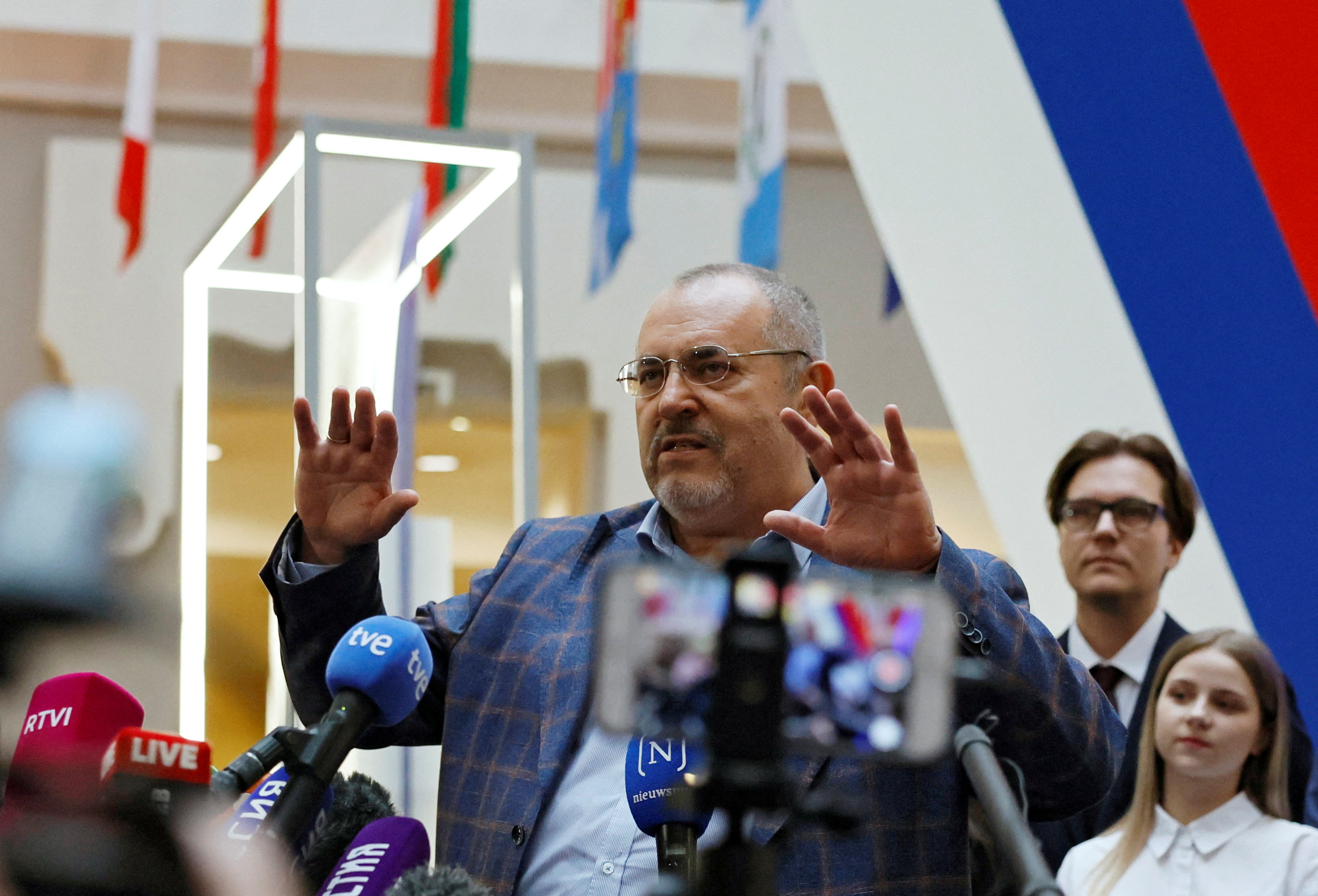
The Central Election Commission (CEC) of Russia has found flaws in documents backing Boris Nadezhdin’s bid to run in next month’s presidential vote, he has said.
The CEC informed the aspiring antiwar candidate on Monday that it had found 15 percent of the signatures he submitted to access the electoral race to be invalid, Nadezhdin said. The commission could now block his bid to enter the election.
The municipal councillor, a prominent critic of President Vladimir Putin, has caught the attention of Russia’s small opposition forces with promises to end the war in Ukraine. He has virtually no chance of unseating Putin, but it is thought that authorities would not welcome a candidate who would introduce antiwar rhetoric in the race for the March 15 election.
Nadezhdin, running on the ticket of the small centre-right Civic Initiative party, last week submitted the 100,000 signatures required to register.
However, the CEC does not tolerate more than a 5 percent error.
“The CEC working group reported 15 percent of defects in the signatures that I have submitted on January 31,” Nadezhdin said on his Telegram channel.
Such a level of invalid signatures would provide grounds for the CEC to disqualify him from running.
“If the Central Electoral Commission refuses to register me I will appeal the decision to the Supreme Court,” Nadezhdin said.
The CEC’s final ruling on the matter is expected on Wednesday, a spokesperson for Nadezhdin said.
Putin will be running as an independent, rather than as the candidate of the governing United Russia party, meaning he needs 300,000 signatures to support his candidacy. He has already collected more than 3.5 million, according to his supporters.
It is thought virtually certain that Putin will win re-election to extend his rule over Russia for at least another six years.
‘More alive than the living’
Officials had already expressed doubt over the validity of 60-year-old Nadezhdin’s bid on Friday.
“When we see dozens of people who are no longer on this earth and they add a signature, that poses questions about the ethical standards being used … including by the person collecting them,” Nikolay Bulayev, CEC’s deputy chairman, said.
Nadezhdin denied the accusations, posting photographs on Telegram of people queueing to submit signatures.
Nobody expects Nadezhdin to win even if he is allowed to participate, given Putin’s long dominance and control of the state. The Kremlin chief is almost certain to win his fifth term as president, extending his 24-year leadership of Russia, including eight years as prime minister.
But Nadezhdin’s campaign has captured people’s attention because of his strong opposition to what the Kremlin calls its “special military operation” in Ukraine.
He says Putin made a “fatal mistake” by launching the conflict and has pledged to end it via negotiation.
Nadezhdin – born in Soviet-ruled Uzbekistan to a Jewish mother who was a music teacher and a physicist father – has spent the last 30 years in Russian politics, working as a councillor in the town of Dolgoprudny outside Moscow.
His bid raises the question of just how far the Kremlin would let him go at a time when speaking out against the conflict is politically fraught, often landing critics in prison.
Putin has not allowed real electoral opposition in his 24-year rule, with rivals such as opposition leader Alexey Navalny behind bars.
Navalny’s wife Yuliya signed her name in support of Nadezhdin in a symbolic photo posted by the jailed critic’s ally.







